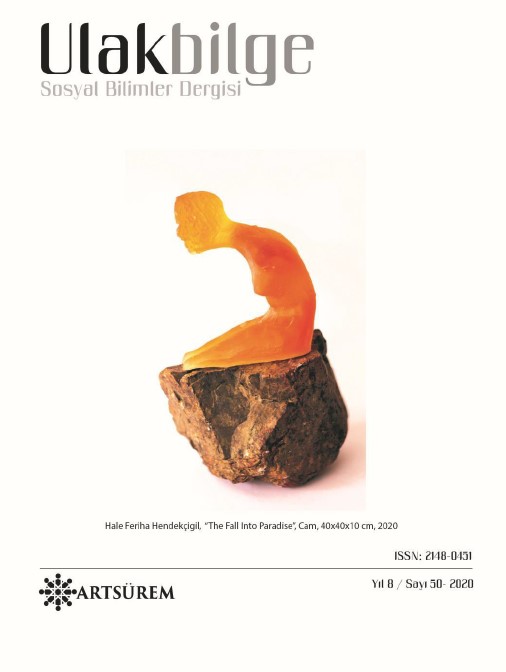TAMAMLANMAMIŞ OYUNCAK BEBEK AİLESİ HİKAYELERİ ÖLÇEĞİ TÜRKİYE ÖRNEKLEMİ ARAŞTIRMALARINDA 6 YAŞ ÇOCUKLARININ BAĞLANMA DURUMLARININ DEĞERLENDİRİLMESİ
AN EVALUATION OF ATTACHMENT STATUS OF 6-YEARS-OLD CHILDREN IN STUDIES INVOLVING INCOMPLETE DOLL FAMILY STORY SCALE TURKISH SAMPLE
Author(s): Serdal Seven, Gökçen İlhan-IldızSubject(s): Psychology of Self, Behaviorism, Evaluation research, Family and social welfare, Socio-Economic Research
Published by: Sanat ve Dil Araştırmaları Enstitüsü
Keywords: ISDF; attachment; 6 age; Turkey;
Summary/Abstract: The goal of this study is to identify attachment styles of 6-year-old children using Incomplete Stories with Doll Family (ISDF) and evaluate the subject in the context of Turkey. In this context, answers were sought to what the average attachment scores of children and distribution of attachment styles were, which cities and regions samples were selected from, what variables were positively and negatively related to attachment. Document analysis, a quantitative research method for case studies, was conducted for the study. Criteria sampling, one of the purposeful sampling strategies, is the sampling method of the study. 17 studies published between 2006 and 2020 that met the relevant criteria. Studies that were identified according to the goal of the study were subjected to a 5-stage content analysis. Analysis results indicate that the lowest attachment score is14.20 and the highest is 23.96 and average attachment score of 17 studies is 20.63. Results also reveal that average attachment score of 16 studies is in the “avoidant” attachment style score range and average attachment score of 1 study is in “hostile/negative” attachment style score range while scores of studies excluding the one with “hostile/negative” attachment style is around 4 score range. It was also found that studied involved in the sample were conducted in seven regions of Turkey. According to the variables that significantly correlate with DSCT, attachment are positively related to 15 variables and negatively related to 10 variables. Variables that are positively related to attachment are pro-social behaviours, school adaptation skills, gender in favour of girls, parents’ educational level, socio-economic status of families, family functions, relations with parents, self-esteem, cognitive abstraction and cognitive flexibility, play behaviours, emotion regulation skills, mother’s attention and warmth. Variables that are negatively related to attachment are aggression, antisocial behaviours and adaptive problems, peer exclusion, fear/anxiety, attention deficit and and hyperactivity disorder, physical and emotional punishment by mother, loneliness and dissatisfaction.
Journal: Ulakbilge Sosyal Bilimler Dergisi
- Issue Year: 8/2020
- Issue No: 50
- Page Range: 806-817
- Page Count: 12
- Language: Turkish

